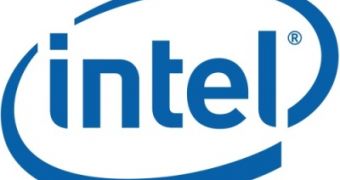The new and improved MacBook systems just released by the Cupertino, California-based Apple have also marked a significant change in design for Apple's new portable computer systems. As we have been reporting throughout the day, the new MacBook, MacBook Pro and MacBook Air systems are now featured with the integrated graphics solutions provided by Santa Clara, California-based NVIDIA. The change here is that Apple decided to go for NVIDIA's chips, instead of sticking with the Intel integrated graphics featured on previous generation MacBook systems.
However, this doesn't mean that the collaboration between Intel and Apple has suffered all that much, as the MacBooks are still packed with Intel technologies. In fact, the very slim, lightweight MacBook Air, initially launched by Apple in early 2008, has now been upgraded to a new generation Intel processor. As some of you know, the 1.6GHz and 1.8GHz MacBook Air models, launched before the Tuesday event, were powered by Intel's 65nm Merom chips, providing a cache memory of only 2MB and 4MB, respectively. The new MacBook Air, on the other hand, features the 45nm Penryn chips, which offer 3MB and 6MB of cache memory.
Commenting on the fact that it lost the battle with NVIDIA's chips in the graphics department, Intel says that it “continues to have a strong relationship with Apple. Graphics is a competitive market and we compete for all new business. Intel's technology is integrated throughout Apple's product line but we didn't win this particular design.” A company spokesperson further explains that, “We believe our products offer significant performance and value to our customer and we will work hard to win back the business.”
Intel may have lost to NVIDIA in the graphics sector, as far as Apple's recently revealed MacBook systems are concerned, but the leading chip maker is pretty much responsible for the computing power in Apple's new portable systems.

 14 DAY TRIAL //
14 DAY TRIAL //